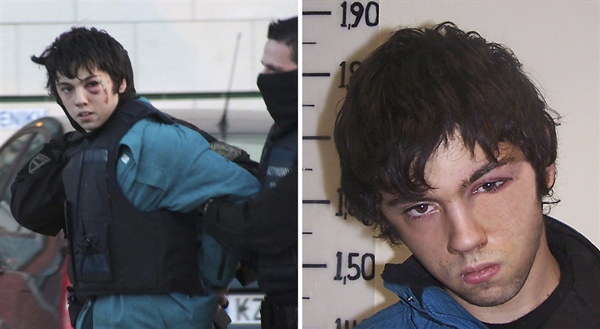
Were teenagers in the 1960s injecting themselves with peanut butter and mayonnaise as a way to get high?
In 1949, did a California restaurant worker really find a will sealed inside a bottle that bequeathed millions of dollars to him, as the finder of the bottle?
From the incompetent criminals file: Back in 1974, 20-year-old Kenneth Lutz of Grand Terrace, California thought he had found an easy way to scam his parents. He kidnapped himself. He did this by attaching a note to his parents' front door demanding $5000 in $20 bills for his return, with instructions that the money be "put out when you go to work Wednesday," and signed the note, "the kidnaper". Then he went into hiding. However, he didn't hide very well. When the police arrived a few hours later they found him sitting at a desk in a camper van behind his parents' home. He promptly confessed that he had written the note, and that no one else was involved in the scheme, explaining, "I wanted the money and it sounded like something that could be done." A detective said that the circumstances of the case had immediately aroused his suspicions because, "You tell me one kidnapper that signs his name 'kidnaper' at the bottom of a note."
Here's an example from 1975 of bureaucracy at its finest. The Nassau County District Attorney planned to create a "bogus store" equipped with hidden surveillance equipment and manned by undercover cops, in order to catch people selling stolen goods on behalf of organized crime. But before it could happen, another part of the state bureaucracy, the Division of Criminal Justice, issued a press release announcing the plan. Defending the announcement, the agency's pr officer noted, "We can't say there are 49 public grants and one secret one." So that was the end of that undercover operation.







